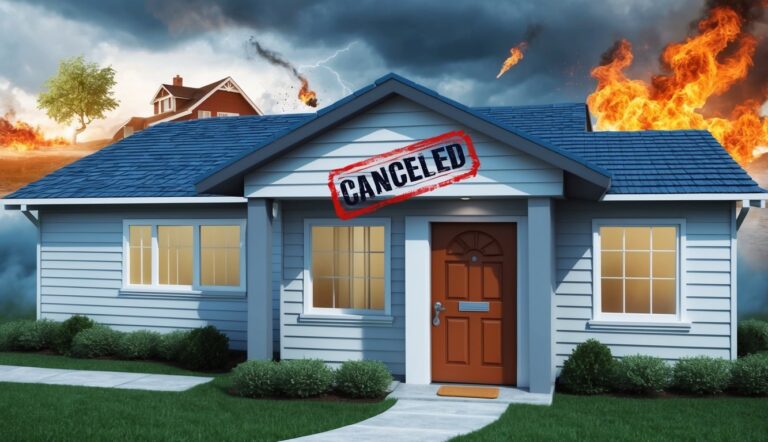Home insurance provides crucial protection for your property and belongings.
While most policies remain in effect as long as you pay premiums, some situations may lead to an insurer canceling your coverage.
Understanding these potential reasons can help you maintain continuous protection for your home.
Insurers can only cancel policies for specific reasons outlined by state laws and your policy terms. Being aware of these potential causes allows you to take proactive steps to avoid a cancellation.
From payment issues to property condition concerns, several factors could put your home insurance at risk.
Knowing what to watch for empowers you to address problems early and keep your valuable coverage intact.
1) Non-payment of premiums
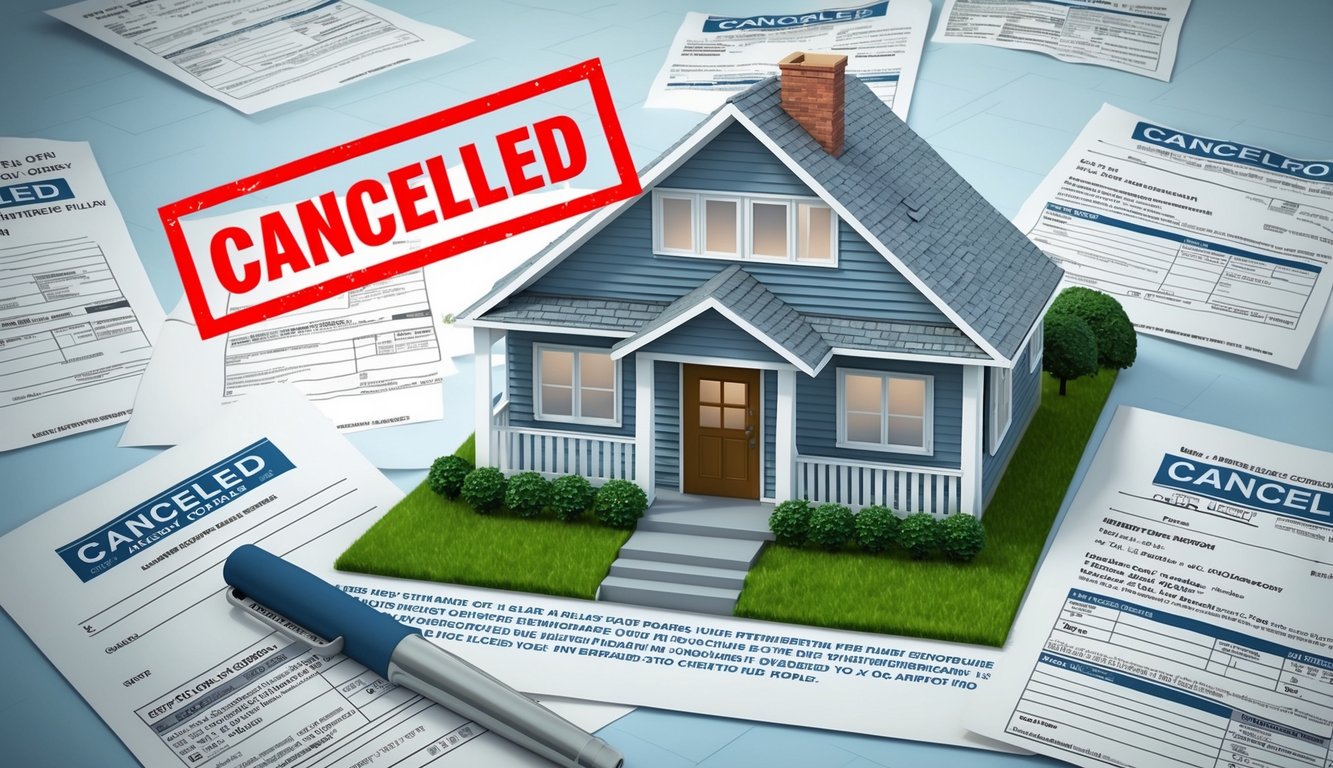
Failing to pay your homeowners insurance premiums is the most common reason for policy cancellation.
Insurance companies require timely payments to maintain your coverage.
If you miss a payment, your insurer will typically send a notice giving you a grace period to catch up.
This period varies by state and insurer but is often around 30 days.
Ignoring these notices can lead to immediate cancellation of your policy.
Once canceled, you’ll lose protection for your home and possessions.
To avoid cancellation, set up automatic payments or reminders for due dates.
If you’re experiencing financial difficulties, contact your insurer promptly to discuss payment options.
Some companies offer payment plans or temporary hardship arrangements.
Being proactive can help you maintain continuous coverage and avoid the hassle of finding new insurance.
Remember, a lapse in coverage can make it harder and more expensive to get insured in the future.
It may also violate your mortgage terms if you have one.
If your policy is canceled for non-payment, act quickly to reinstate it or find new coverage.
Going without homeowners insurance leaves you financially vulnerable to potential disasters.
2) Frequent claims history
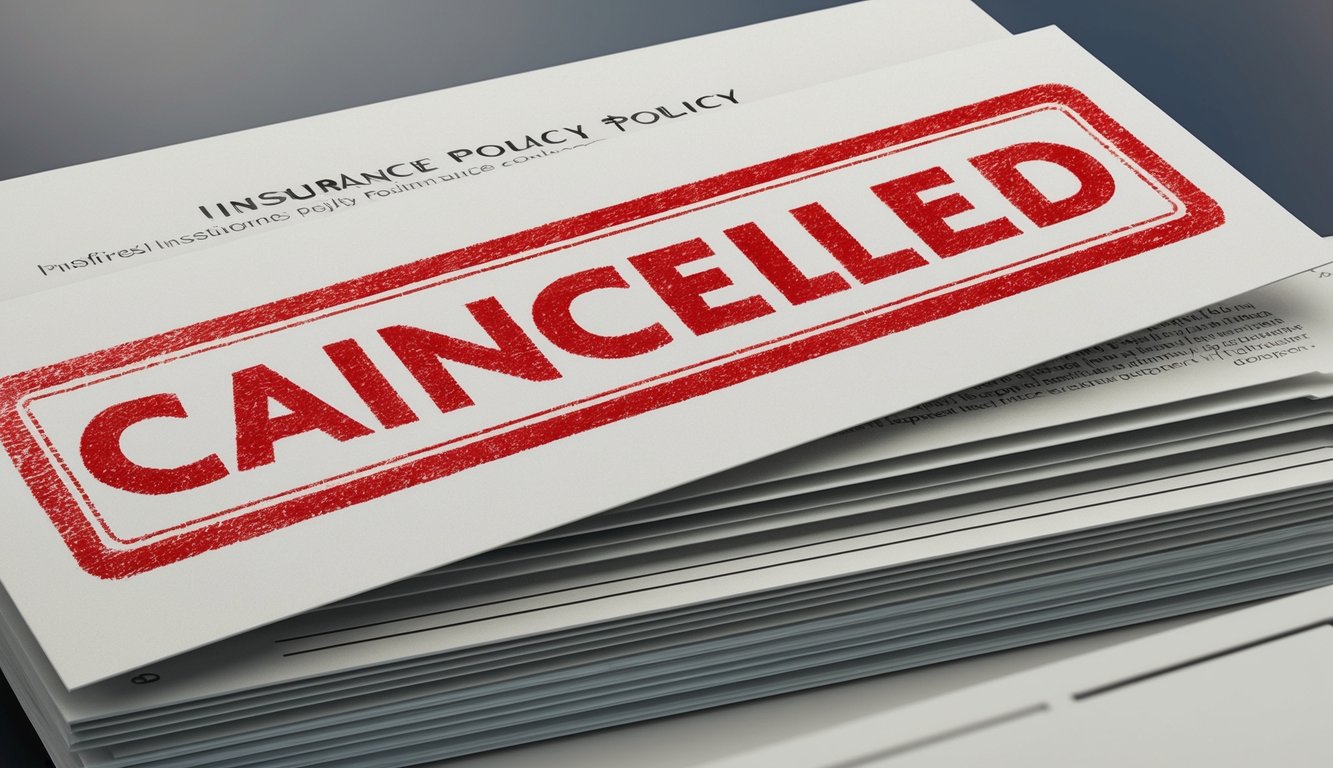
Filing too many insurance claims can put your homeowners policy at risk.
Insurance companies view frequent claims as a red flag, indicating a higher likelihood of future payouts.
Most insurers track your claims history over the past 3-5 years.
Multiple claims during this period may lead them to consider canceling your policy.
Frequent or costly claims can make you appear as a high-risk client.
This perception often results in higher premiums or, in some cases, denial of coverage altogether.
It’s important to be strategic about when to file a claim.
Minor damages that you can afford to repair out-of-pocket might be better left unreported.
Natural disaster-related claims are particularly concerning for insurers. Multiple claims due to events like hurricanes or floods can significantly increase your risk profile.
To protect your policy, consider raising your deductible.
This can discourage you from filing smaller claims and demonstrate to insurers that you’re willing to share more of the risk.
Remember, insurance is designed for significant losses.
Using it too frequently for minor issues may jeopardize your coverage when you need it most.
3) Fraudulent claims
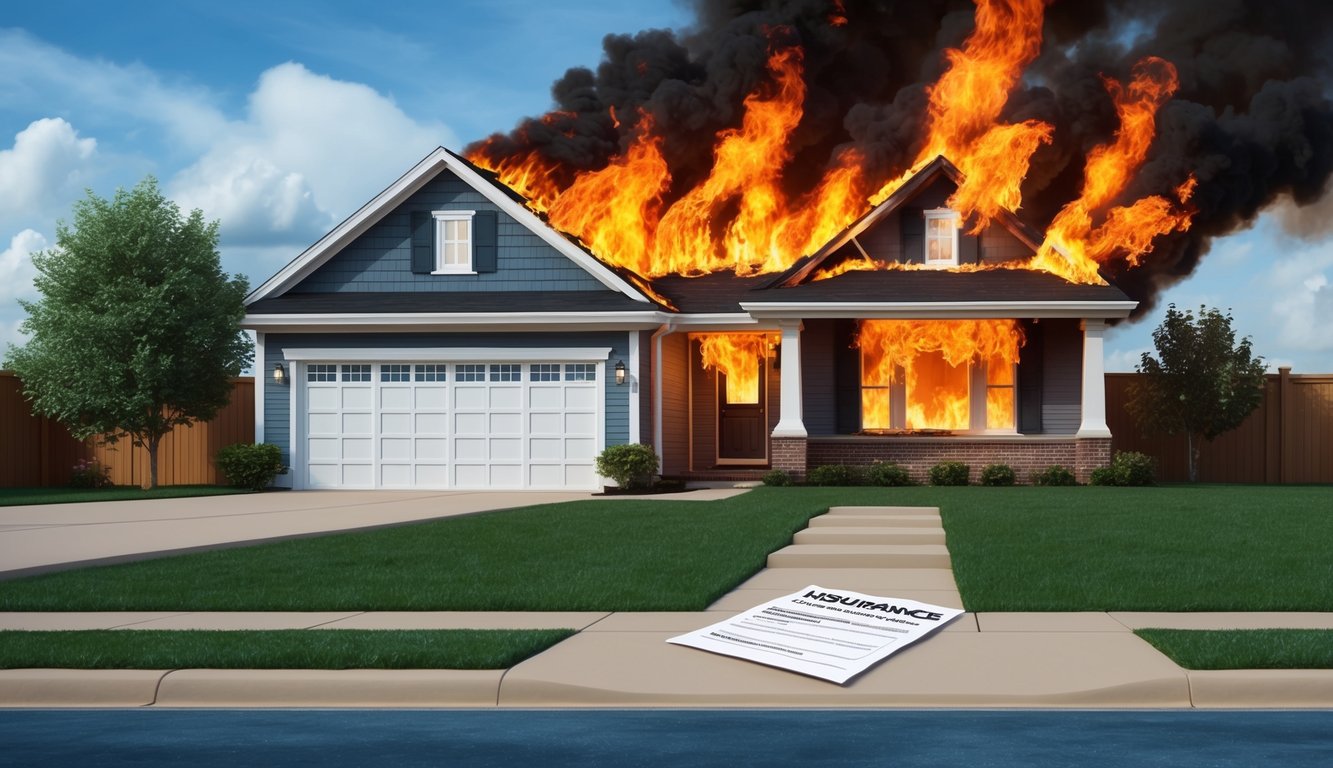
Filing fraudulent insurance claims is a serious offense that can lead to the cancellation of your home insurance policy.
Insurance companies take fraud very seriously and have systems in place to detect suspicious claims.
If you’re caught submitting a fraudulent claim, your insurer may terminate your policy immediately.
This can happen even if you’ve never had any issues with your policy before.
Fraudulent claims can take many forms.
These might include exaggerating the value of damaged or stolen items, claiming for damage that occurred before you had coverage, or staging a theft or accident.
Insurance companies investigate claims thoroughly.
They may use adjusters, forensic experts, and even private investigators to verify the details of your claim.
If fraud is suspected, your insurer will likely deny the claim and cancel your policy.
They may also report you to law enforcement agencies, which could lead to criminal charges.
It’s crucial to be honest and accurate when filing any insurance claim.
If you’re unsure about any aspect of your claim, it’s best to consult with your insurance agent for guidance.
Remember, the consequences of insurance fraud extend beyond policy cancellation.
It can affect your ability to obtain insurance in the future and may even impact your credit score.
4) High-risk location
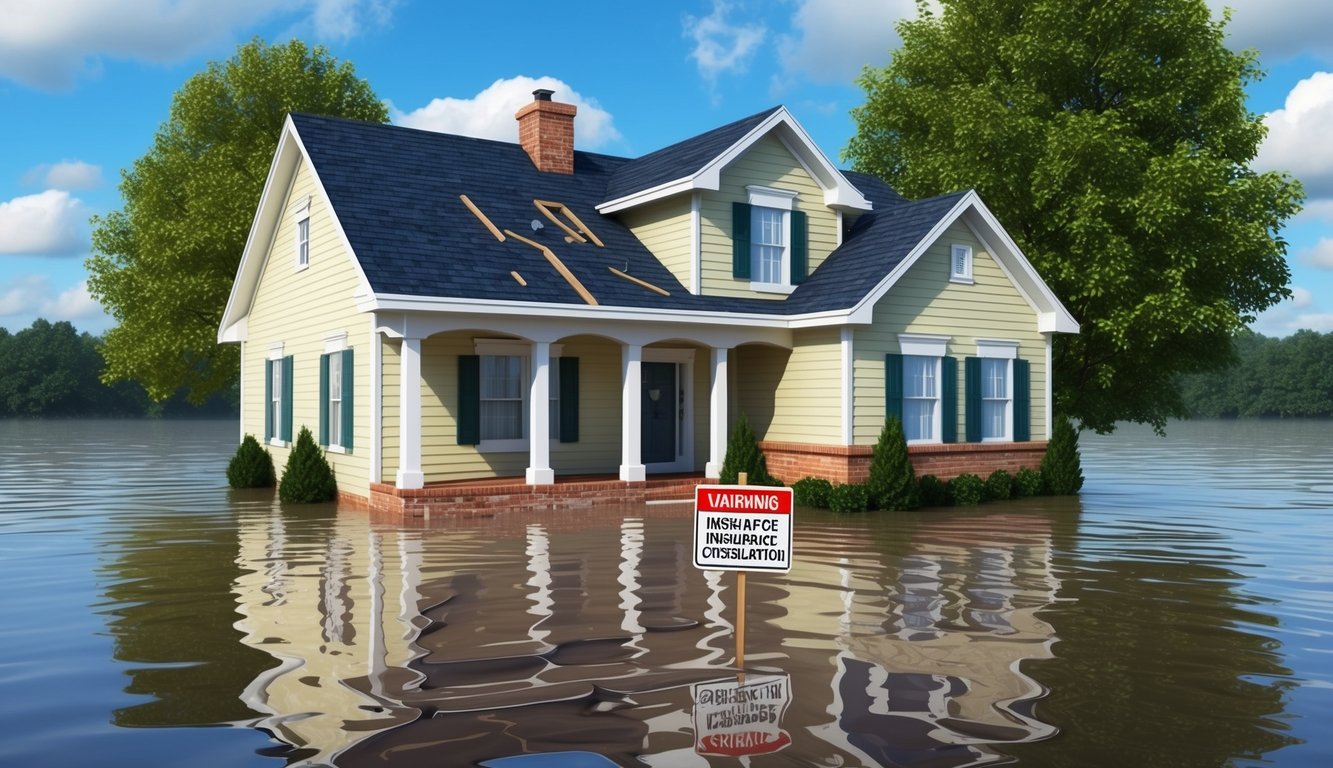
Living in an area prone to natural disasters can put your homeowners insurance at risk of cancellation.
Insurance companies assess the likelihood of claims based on your location.
If you reside in a region with elevated wildfire risk, your insurer may decide to stop coverage.
Coastal areas vulnerable to hurricanes and flooding also face higher chances of policy cancellation.
Insurers regularly reevaluate the risks associated with different geographical areas.
They may choose to reduce their exposure in certain locations by canceling policies or not renewing them.
Changes in climate patterns can affect your home’s risk profile.
Areas experiencing increased frequency of severe weather events may see more insurance cancellations.
To mitigate this risk, consider taking steps to protect your property.
Installing storm shutters, reinforcing your roof, or creating defensible space around your home can help.
Keep in mind that if one insurer cancels your policy due to location, you may face challenges finding new coverage.
Some areas have state-run insurance pools for high-risk properties, but these often come with higher premiums and limited coverage.
Stay informed about your area’s risk factors and any changes in insurance company policies.
This awareness can help you prepare for potential coverage issues and explore alternative options if needed.
5) Lack of maintenance
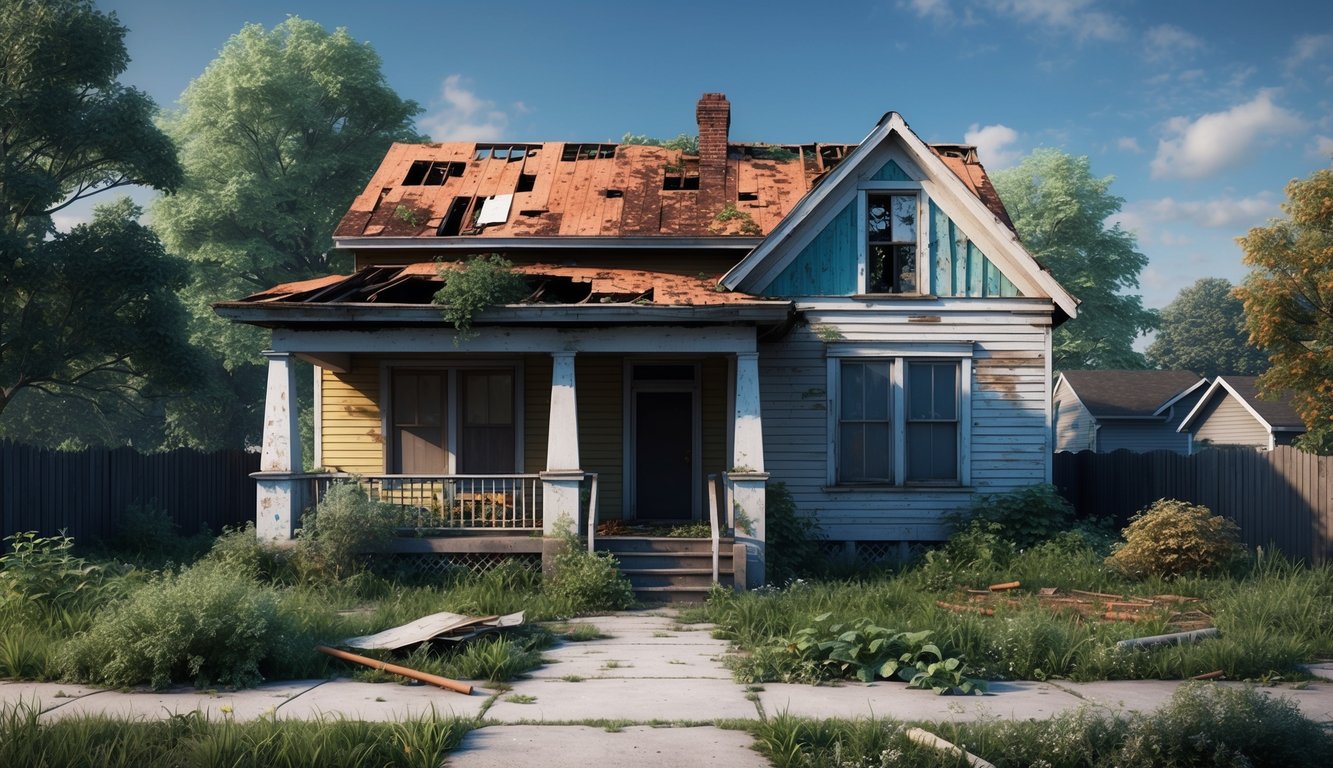
Failing to maintain your home properly can lead to your homeowners insurance being canceled.
Insurance companies expect you to keep your property in good condition to minimize risks.
Neglecting basic upkeep can result in damage that insurers view as preventable.
For example, not repairing a leaky roof can cause water damage and mold growth over time.
Regular maintenance helps prevent small issues from becoming major problems.
This includes tasks like cleaning gutters, fixing loose shingles, and addressing plumbing leaks promptly.
Insurance companies may cancel your policy if they discover you haven’t properly maintained your property.
They typically assess this during home inspections or when processing claims.
Keep detailed records of all maintenance and repairs you perform on your home.
This documentation can be valuable if your insurer questions your upkeep efforts.
If you receive warnings about maintenance issues, address them quickly.
Ignoring these notices could result in policy cancellation.
Remember that poor maintenance can lead to multiple claims, which insurers view unfavorably.
Frequent claims due to neglect may prompt your insurer to drop your coverage.
To protect your policy, create a regular maintenance schedule for your home.
Addressing small issues promptly can help you avoid larger problems and potential insurance cancellation.
6) Unrepaired damage
Unrepaired damage to your home can lead to insurance cancellation.
Insurance companies expect you to maintain your property in good condition to minimize risks.
If you’ve filed a claim for damage, your insurer may require repairs within a specific timeframe. Failing to complete these repairs can result in policy cancellation.
Even if you haven’t filed a claim, visible damage can be problematic.
Insurance companies may conduct periodic inspections or review satellite imagery of your property.
Roof damage, cracked foundations, or other structural issues are red flags.
These issues increase the likelihood of future claims and may prompt your insurer to cancel your policy.
Water damage, mold, or pest infestations left unaddressed can also lead to cancellation.
These problems can worsen over time and pose significant risks to your home’s integrity.
You should promptly address any damage to your home, whether from weather events, accidents, or wear and tear.
Regular maintenance and timely repairs are crucial for keeping your insurance policy active.
If you need more time to complete repairs, communicate with your insurer.
They may grant an extension if you’re actively working on resolving the issues.
7) Illegal activities
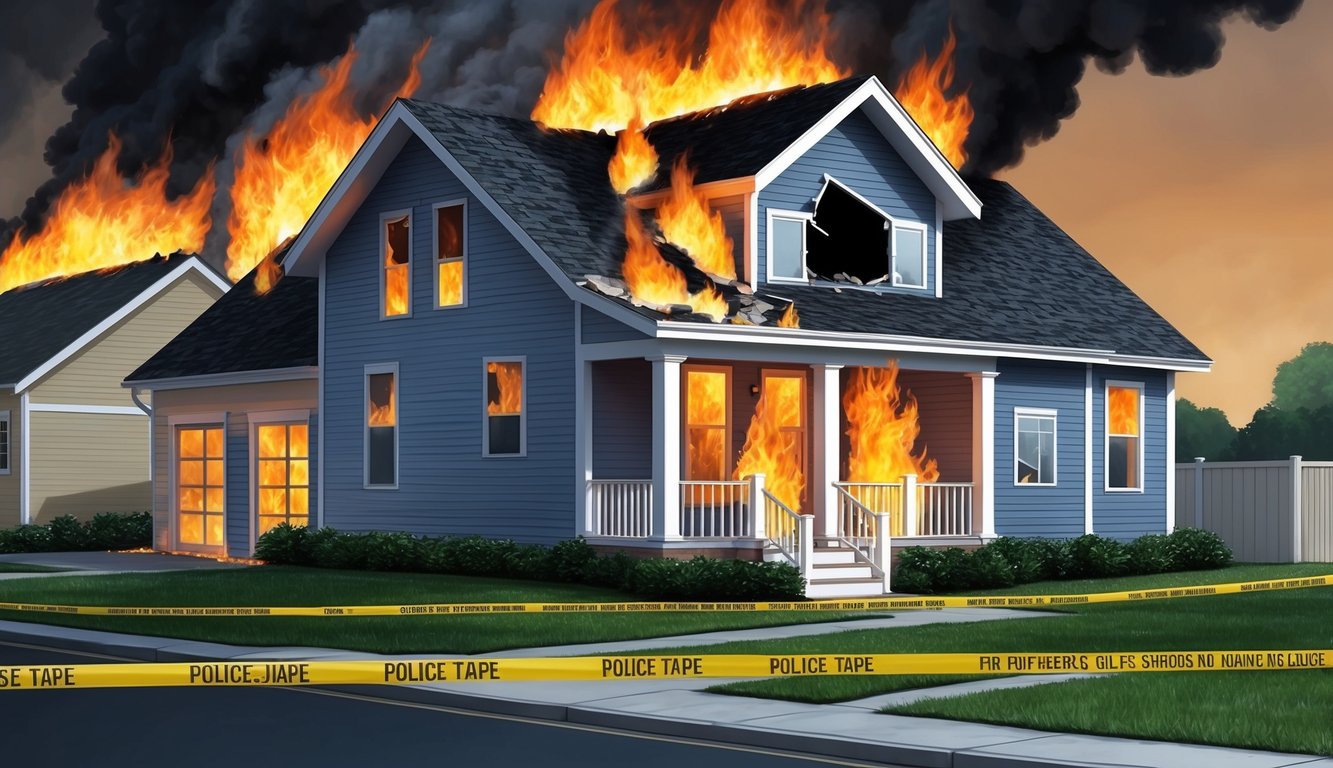
Engaging in illegal activities on your property can lead to the cancellation of your home insurance policy.
Insurance companies are wary of covering homes associated with unlawful behavior due to increased risks.
Growing illegal substances like marijuana (where prohibited) or operating a methamphetamine lab can result in immediate policy termination.
These activities pose significant dangers, including fire hazards and potential property damage.
Running an illegal business from your home may also trigger cancellation.
This includes unlicensed daycare services, unauthorized rental arrangements, or other undisclosed commercial operations.
Allowing criminal activities to occur on your property, even if you’re not directly involved, can jeopardize your coverage.
Insurance providers may view this as a breach of your policy terms.
If you’re convicted of a felony, your insurer might cancel your policy.
They may consider you a higher risk and choose to discontinue coverage.
Remember, insurance companies have the right to investigate suspected illegal activities.
If they discover any unlawful behavior, they can terminate your policy with little notice.
To maintain your home insurance, always ensure your property is used for legal purposes and comply with local laws and regulations.
Transparency with your insurer about any changes in your home’s use is crucial to avoid unexpected cancellations.
Common Coverage Options
Many policies offer optional coverages to enhance your protection.
Flood insurance is a common add-on, as standard policies don’t typically cover flood damage.
Earthquake coverage is another option, especially important in seismically active areas.
Valuable items coverage can protect high-value possessions like jewelry or art that may exceed standard policy limits.
Home business coverage is useful if you run a business from your residence.
Identity theft protection is increasingly popular, helping you recover from financial losses due to identity fraud.
Factors Influencing Policy Cancellation
Insurance companies carefully evaluate several elements when deciding to cancel a homeowners policy.
Your risk profile and payment history play crucial roles in maintaining coverage.
Risk Assessment Procedures
Insurance providers conduct thorough risk assessments to determine the likelihood of claims.
They inspect your property for potential hazards that could lead to future claims.
Factors considered include:
- Age and condition of the home
- Presence of outdated electrical systems or plumbing
- Structural issues or visible damage
- Proximity to natural disaster-prone areas
If your home has unaddressed fire hazards, leaky plumbing, or a deteriorating kitchen, insurers may view it as high-risk.
You can mitigate these concerns by promptly addressing maintenance issues and implementing safety measures.
Payment History and Financial Stability
Your payment record significantly impacts policy retention.
Consistent late payments or missed premiums can trigger cancellation.
Key financial factors:
- Timely premium payments
- Credit score
- History of insurance claims
To maintain coverage, set up automatic payments or reminders.
If you face financial difficulties, contact your insurer to discuss payment options.
They may offer grace periods or alternative payment plans to help you avoid policy cancellation.
Preventive Measures to Avoid Cancellation
Taking proactive steps can significantly reduce the risk of your home insurance being canceled.
Focus on maintaining your property and staying current with payments to keep your coverage intact.
Maintaining Property Condition
Regularly inspect your home for potential issues.
Fix leaky roofs, faulty wiring, and plumbing problems promptly.
Keep your property well-maintained to minimize risks.
Trim trees near your house to prevent storm damage.
Install smoke detectors and security systems to improve safety.
These measures can lower your risk profile.
Document all repairs and improvements.
Take photos and keep receipts.
This evidence can help if your insurer questions your property’s condition.
Consider annual professional inspections.
An expert can spot issues you might miss.
Address their recommendations to keep your home in top shape.
Timely Premium Payments
Set up automatic payments for your insurance premiums.
This ensures you never miss a due date.
Late or missed payments are a common reason for policy cancellation.
If you face financial difficulties, contact your insurer immediately.
Many companies offer grace periods or payment plans.
Don’t wait until you’re behind to seek help.
Review your policy annually.
Understand what’s covered and any payment requirements.
This helps you budget appropriately for your insurance costs.
Consider paying your premium in full if possible.
Some insurers offer discounts for annual payments.
This can save money and eliminate the risk of missed monthly payments.


